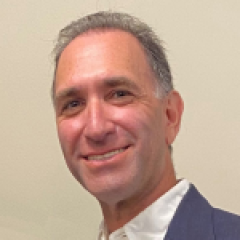Mold, Cancer, Viruses and... Walmart?
When people become so convinced their perspective is unimpeachable, they do and say some pretty funny things. A recent example was Rep. Denny Rehberg, who is seeking the Republican nomination for the open U.S. Senate seat in Montana. He recently tried to convince a town hall audience in Missoula that he and his wife "are struggling like everyone else." According to his financial disclosure forms, he has a net worth of up to $56 million. He apparently didn't realize that such a statement doesn't play well to an audience of non-millionaires.
Comparable blinders seem to be the new fashion statement among advocates of market-based education policies.
I direct the National Education Policy Center, housed at the University of Colorado at Boulder. One of our endeavors is the "Think Twice" think tank review project, which applies academic peer review standards to reports from think tanks and provides brief reviews published on the project web site. The reviews, written in non-academic language, are intended to help policy makers, reporters, and others assess the merits of the reviewed reports.
This past month, we asked ASU professor David Garcia to review a new report called "Going Exponential: Growing the Charter School Sector's Best," published by the Progressive Policy Institute - a prominent neoliberal think tank. According to the review, which is published on the NEPC website, the PPI report is weak and troubling in a variety of respects. But what struck me as I read through Garcia's review of the report was that the authors seem to be so ensconced in a cocoon of like-minded thinkers that the report's weaknesses might never have been challenged before publication. Most humorously and shockingly, the report's authors seemed to think it was a good idea -- in a report advocating the exponential growth of their favorite charter schools -- to compare those charters to somewhat undesirable things like viruses and cancer:
We also conducted research about when and how exponential growth occurs in the natural world, specifically examining mold, algae, cancer, crystals and viruses. We used these findings in addition to cross-sector lessons to fuel our thinking about fresh directions for the charter sector. The similarities between the natural world and organizational worlds are rather striking and useful for understanding the critical elements of exponential growth.
Garcia points out that the report never quite explains how the growth of viruses applies to the growth of charter schools. But even if the authors had somehow managed to do so, I can't help but feel that the comparison is a bit tone deaf. Setting aside the example of crystals, which I think are rather interesting and attractive, what I take away from this comparison is that exponential growth in the natural world runs the gamut all the way from disagreeable to deadly.
But the PPI folks are not alone. Less colorfully, but just as intriguingly, I was recently criticized by someone working for/with the "Fordham Institute" think tank, for failing to understand the beauty of the market -- and he chose Wal-Mart as his poster-child. The author of this critique was upset by an essay I published in Dissent magazine. In the essay, titled "Free-Market Think Tanks and the Marketing of Education Policy," I explained how free-market-oriented think tanks have successfully shaped education policy debates. And, included in the piece, I wrote the following (quoted in the Fordham critique):
This points to what should be the fundamental progressive response -- the critique that many progressives seem hesitant to seize: that educational opportunities should be among the most precious public goods. While public education does provide an important private benefit to children and their families, it also lies at the center of our societal well-being. Educational opportunities should therefore never be distributed by market forces, because markets exist to create inequalities -- they thrive by creating "winners" and "losers."
The Fordham author was not happy because, he explained, my essay "misunderstands markets." It seems that -- if "carefully tend[ed]" -- they generate only winners, at least at the consumer end of things. To understand this truth, we're pointed to Wal-Mart:
If Wal-Mart and another retailer compete, in a well-functioning market the consumer wins by paying lower prices, enjoying higher quality, or both, regardless of whether Wal-Mart or its competitor wins a given customer's business. Markets don't exist for the sake of competition, or to provide wealth for "winning" competitors. Competition is intended to serve end users.
Is that really how people look at Wal-Mart? Isn't there long-term damage caused to communities (and consumers -- sometimes known by their other name: community members) by the 'consumer-benefiting' effects of Wal-Mart's competition closing down main street stores? And aren't those same community members harmed by Wal-Mart's leading role in undermining labor and safety regulations and its use of China sweatshops?
Perhaps the Fordham author's choice of Wal-Mart to make his point was influenced -- consciously or subconsciously -- by the Walton Family Foundation's leading role in pushing market-based education policies. From my perspective, in any case, the choice couldn't be more apt.
It's not just Wal-Mart, of course. Does anyone remember way back to 2008, when the bottom dropped out of our economy because of reckless trading of securitized real-estate loans? Perhaps this market wasn't 'carefully tended' (or 'well regulated,' as I believe the Fordham author does sincerely advocate), but neither as a rule are the educational markets being advocated by the free-market think tanks whose reports NEPC's authors have reviewed.
In the end, I fear that students will indeed continue to be losers as our public schools are turned over to private corporations. After all, there's only so much one can learn from mold.
This blog post has been shared by permission from the author.
Readers wishing to comment on the content are encouraged to do so via the link to the original post.
Find the original post here:
The views expressed by the blogger are not necessarily those of NEPC.
